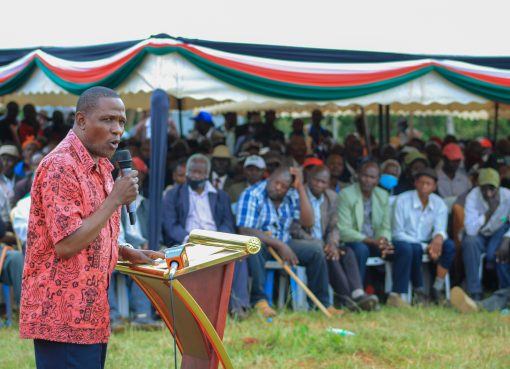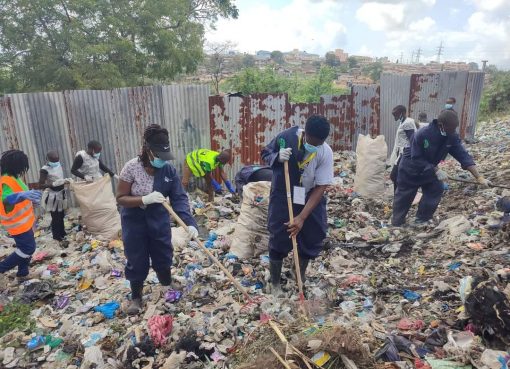Over 3,000 households from Laikipia North Sub-County will benefit from clean water for domestic use and irrigation derived from carbon credits benefits owing to their conservation efforts of the Mukogodo forest and surrounding conservancies.
Laikipia Conservancies Association Chairman Kip Ole Polos said that Il Ngwesi Conservancy had received Sh. 36 million out of which Sh. 9 million was set aside for the water projects for locals to cushion them from the effects of dry weather and competing for the precious commodity with livestock and wildlife.
Ole Polos further stated that another Sh. 5 million of the initial amount had been donated by the Il Ngwesi Conservancy to the Laikipia County government to boost its conservation efforts, especially in the rid parts of the area that forms a large portion of the vast county.
“We intend to plough back much of that money from carbon credits to the neighbouring community so that they enjoy the benefits of conservation and have them realize that conserving the environment has trickle benefits to the entire community and encourage them even more, to act as environmental crusaders,” Ole Polos said Saturday while handing over the water projects to the community.
Among the beneficiaries of the water projects from the carbon credits money included Ngare Ndare community that was connected to an irrigation project worth Sh. 3 million, Ethi village households received 97 water tanks with a capacity of 10,000 litres for rain harvesting, rehabilitation of Nandung’oro borehole, provision of clean drinking water at Lokusero village tapped from Mukogodo forest and Sang’a village domestic and livestock use water project tapped from Borana conservancy.
Nancy Tausi from Ngare Ndare village lauded the water project by Il Ngwesi noting that it assists the community greatly in farming and getting water for domestic use and eases the burden of travelling long distances to get water for use at their homes.
“Many are the times when some of our villagers were injured and killed by wild animals as they went in search of water, but now with the project in place, we have no worries and our lives are much better.
Samuel Kasoo from Ethi village appreciated the water tanks donation to the homesteads noting that residents were not able to tap rainwater due to lack of storage tanks.
“Now we can store water when it rains for use later in dry situations,” an elated Kasoo said.
Mukogodo location Chief Harrison Kisio while lauding the initiative by Il Ngwesi conservancy to provide water to local communities noted that area residents had been sensitized on the importance of conservation making Mukogodo forest one of the most protected areas by the local community in the country.
“As a community, we sat down with the management board of Il Ngwesi conservancy after they got the carbon credits money and we prioritized the provision of water to all the neighbouring communities as a way of easing pressure on the Mukogodo forest ecosystem and am now glad this has come to fruition. This initiative will go a long way in conservation efforts,” Kisio said.
The over 30,000 hectares Mukogodo forest lies on the border of Samburu and Isiolo counties in Laikipia and is the mainstay of pastoralist communities in the three counties but is largely protected by the Maasai community living around who view it as a valuable resource not only for grazing animals but also as a source of food and medicinal plants.
A carbon credit is a kind of permit that represents 1 ton of carbon dioxide removed from the atmosphere. They can be purchased by an individual or, more commonly, a company to make up for carbon dioxide emissions that come from industrial production, delivery vehicles or travel.
Carbon credits are generated from projects around the world that pull Greenhouse Gases (GHGs) out of the atmosphere or keep emissions from being released. Each time a project verifies they have reduced, avoided, or destroyed one metric tonne of GHG, one carbon credit is created.
Ole Polos revealed that other conservancies in Laikipia that have benefited from carbon credit cash were Naibunga and Lekuruki and were also involved in various community assistance projects to assist in environmental conservation.
Laikipia Wildlife Forum through its grants manager Margaret Wambua said that her organization had partnered with Il Ngwesi conservancy in water provision to local residents in order to separate water access points from people and wildlife as a way of minimizing human-wildlife conflicts.
By Martin Munyi





